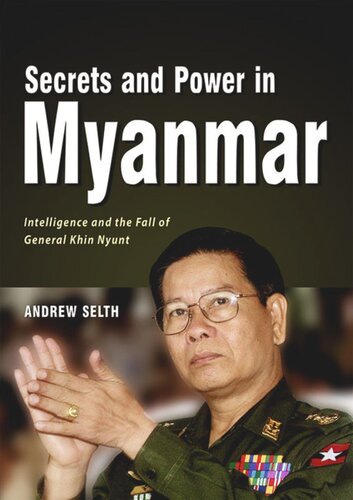

Most ebook files are in PDF format, so you can easily read them using various software such as Foxit Reader or directly on the Google Chrome browser.
Some ebook files are released by publishers in other formats such as .awz, .mobi, .epub, .fb2, etc. You may need to install specific software to read these formats on mobile/PC, such as Calibre.
Please read the tutorial at this link: https://ebookbell.com/faq
We offer FREE conversion to the popular formats you request; however, this may take some time. Therefore, right after payment, please email us, and we will try to provide the service as quickly as possible.
For some exceptional file formats or broken links (if any), please refrain from opening any disputes. Instead, email us first, and we will try to assist within a maximum of 6 hours.
EbookBell Team

5.0
68 reviews"No external observer knows more about Myanmar’s security and intelligence apparatus than Andrew Selth. In this book he presents an account of the structure and functions of Myanmar’s deep state, along with a tale of personal ambition, rivalry and ruthless power politics worthy of John Le Carre. A thoroughly educative, entertaining and intriguing read." — Professor Michael Wesley, Dean, College of Asia and the Pacific, The Australian National University "Andrew Selth has once again amply illustrated the depth and penetration of his study of Myanmar/Burma and its institutions. This work on the more recent aspects of the country’s intelligence apparatus goes beyond a masterful and comprehensive analysis of the Burmese intelligence community, and probes the social and institutional bases of the attitudes giving rise to that critical aspect of power. We are once again in Dr Selth’s debt. This is required reading for serious observers of the Burmese scene." — David I. Steinberg, Distinguished Professor of Asian Studies Emeritus, Georgetown University "By lifting the lid on a pervasive yet secretive intelligence apparatus, Andrew Selth makes an outstanding contribution to Myanmar Studies. For scholars and practitioners alike, this book provides an essential history of a security state that remains powerful even during the transition away from overt authoritarian rule." — Professor Ian Holliday, Vice-President (Teaching and Learning), The University of Hong Kong